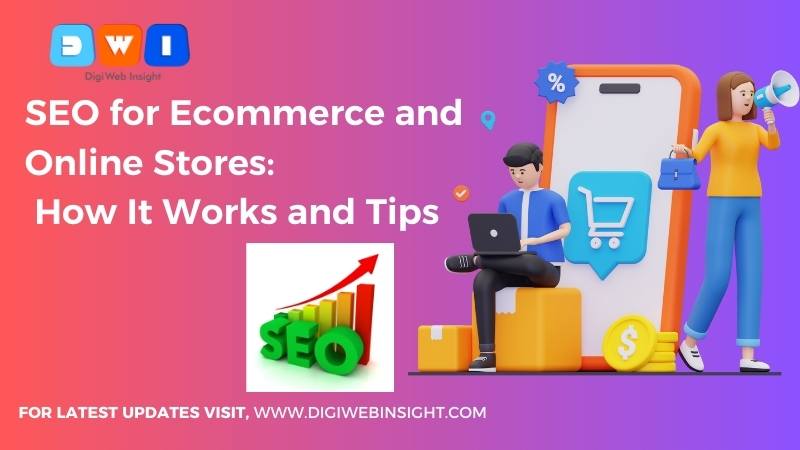SEO for Ecommerce and Online Stores: How It Works and Tips
In today’s digital age, most consumers conduct extensive research online before making a purchase. This involves visiting multiple stores, comparing prices and products, and gathering information. Therefore, it’s essential for online stores and e-commerce platforms to have a robust SEO strategy to improve visibility in search engines, attract potential customers, and ultimately increase sales. Visibility on Google and other search engines is crucial for the success of an online store.
In this article, we will explore the key aspects of SEO optimization for e-commerce, from keyword research to off-page SEO. At agenciaSEO.eu, we work with numerous online stores across various sectors, markets, and countries, leveraging our extensive experience and expert team specialized in SEO strategies for e-commerce.
If you need inspiration to plan an SEO strategy for your store or want to review important points to ensure you are on the right track, keep reading. Below, we provide tips and best practices to optimize the performance of your online store in search engines.
Table of Contents
SEO Tips for Ecommerce You Should Apply
Creating an online store is a common solution for businesses looking to sell products, but it must be done correctly to avoid headaches and achieve expected results. The return on investment (time, effort, and money) is crucial, and visibility is key to success.
Understanding How Potential Customers Search for Product Information
Before diving into SEO optimization, it’s important to understand how potential customers search for product information online. Users conduct different types of searches, known as keywords or search terms, based on their intent:
- Navigational Searches: The user knows where they want to go and uses the search engine to get there quickly, often for specific brands.
- Informational Searches: The user seeks information or wants to learn about a topic, typically in the early stages of the purchasing process.
- Transactional Searches: The user is ready to make a purchase and searches with the intent to buy, making these keywords crucial for an online store’s SEO strategy.
Understanding search intent allows you to tailor your SEO strategy to user needs, providing a relevant and satisfying experience. For e-commerce, search intent often relates to purchasing products, so it’s important for your store to have a clear, easy-to-navigate structure.
Keyword Research: The Foundation of SEO for Your Online Store
To develop effective SEO techniques, start with keyword research by asking:
- How do potential customers search for the products I offer?
- Who is my target audience?
- What do users type into Google to find my product?
Identifying your business keywords is essential for users to find your products. If you’re setting up an e-commerce site or have one already, identify the keywords for which you want to rank. Tools like Google Keyword Planner, Ubersuggest, and Answer the Public can help you find relevant keywords.
Value Long-Tail Keywords
Long-tail keywords, which are more specific and have lower search volumes, often have better conversion rates as they match specific search intentions. For example, “plain blue wedding t-shirts” is more specific than “shirts” and can yield more accurate results.
Structuring Your Ecommerce Site Based on Search Engine Results
A clear and organized web structure with defined categories and subcategories aligned with your keyword strategy is important. Internal linking improves crawlability and directs relevance to main pages, categories, and subcategories.
Functional Design
An easy and simple structure helps users understand your site quickly, streamlining the purchasing process. A creative design can attract users, but keep it clean, beautiful, tidy, and intuitive.
On-Page SEO Aspects for Ecommerce
Languages and Geographic Targeting
Consider geographic targeting and languages for your SEO strategy, as users from different regions use different search terms. Adapt your keyword and content strategy accordingly.
SEO Optimization of Metadata
Metadata, such as title and description tags, should be optimized with relevant keywords. Use capital letters and SEO emojis to stand out in search results.
Image Optimization
Ensure file names, ALT tags, and image titles are optimized with relevant keywords. Use high-quality images that load quickly to improve user experience and visibility.
URL Optimization
Create clear, descriptive, and consistent URLs using relevant keywords. Avoid special characters and keep URLs short and easy to read.
Avoid Duplicate Content
Ensure your content is unique to avoid SEO issues. Use canonical tags for similar products to indicate the main page to search engines.
Off-Page SEO for Ecommerce: Link Building
Link building is crucial for improving search engine ranking. Obtain links naturally from guest posts, business directories, forums, and authoritative sites.
Focus on Conversion
An online store focused on conversion will make organic traffic more likely to result in purchases. Use calls to action, intuitive navigation, attractive design, and highlight important elements like purchase buttons and offers.
Create a Strong Social Media Strategy
Social media is vital for business communication and branding. Use platforms that align with your product and audience, offering valuable content to attract and connect with users, turning them into customers or brand ambassadors.
Conclusion
These tips can help improve your e-commerce SEO positioning and achieve better Google rankings. For more advanced and technical aspects, consider investing more time in learning SEO or consulting digital marketing professionals. At Digiweb Insight, we can help design your web positioning strategy. Contact us or request an SEO quote for professional advice and support.


